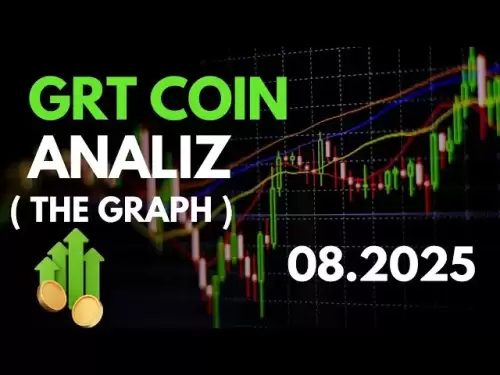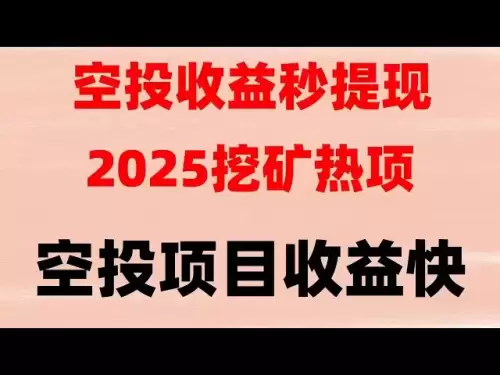-
 Bitcoin
Bitcoin $119300
2.40% -
 Ethereum
Ethereum $4254
-0.20% -
 XRP
XRP $3.184
-1.38% -
 Tether USDt
Tether USDt $1.000
0.00% -
 BNB
BNB $803.9
0.58% -
 Solana
Solana $183.1
1.50% -
 USDC
USDC $0.0000
0.01% -
 Dogecoin
Dogecoin $0.2339
-2.87% -
 TRON
TRON $0.3384
0.88% -
 Cardano
Cardano $0.8018
-0.29% -
 Hyperliquid
Hyperliquid $45.13
3.14% -
 Chainlink
Chainlink $22.10
0.96% -
 Stellar
Stellar $0.4439
-0.94% -
 Sui
Sui $3.875
-0.73% -
 Bitcoin Cash
Bitcoin Cash $570.7
0.24% -
 Hedera
Hedera $0.2589
-2.90% -
 Ethena USDe
Ethena USDe $1.001
-0.01% -
 Avalanche
Avalanche $23.83
-1.73% -
 Litecoin
Litecoin $123.8
2.61% -
 Toncoin
Toncoin $3.351
-1.13% -
 UNUS SED LEO
UNUS SED LEO $9.103
1.13% -
 Shiba Inu
Shiba Inu $0.00001356
-1.40% -
 Uniswap
Uniswap $10.93
-0.19% -
 Polkadot
Polkadot $4.057
-1.97% -
 Dai
Dai $1.000
0.01% -
 Cronos
Cronos $0.1646
4.66% -
 Ethena
Ethena $0.7974
8.11% -
 Pepe
Pepe $0.00001208
-2.89% -
 Bitget Token
Bitget Token $4.445
-1.70% -
 Monero
Monero $268.8
-2.00%
How to calculate the handling fee
In crypto trading, handling fees charged by exchanges impact transaction costs and can be influenced by exchange platform choice, order types, trading volume, and membership status.
Jan 27, 2025 at 05:38 pm
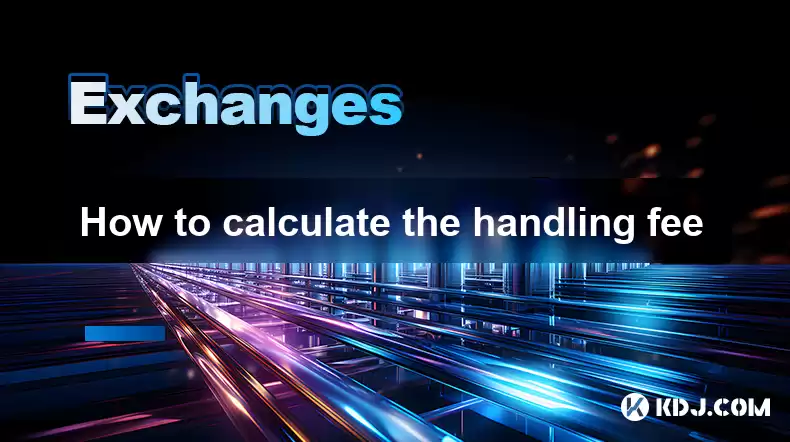
Key Points:
- What are handling fees in crypto trading?
- Factors affecting handling fees in crypto trading
- How to calculate handling fees for different order types
- Tips for reducing handling fees in crypto trading
What Are Handling Fees in Crypto Trading?
Handling fees are charges levied by cryptocurrency exchanges on traders for executing buy, sell, or trading orders. These fees are usually a percentage of the total transaction value and are used to cover the exchange's operational expenses, including platform maintenance, liquidity provision, and customer support.
Factors Affecting Handling Fees in Crypto Trading
Several factors affect handling fees in crypto trading, including:
- Exchange platform: Different exchanges have different fee structures based on factors such as market share, volume, and trading pairs offered.
- Order type: Limit orders (where traders specify a desired price) typically have lower fees than market orders (where trades execute immediately at the best available market price).
- Volume: Higher trading volumes often qualify for reduced handling fees due to bulk discounts offered by exchanges.
- Account type: Professional or high-volume traders may negotiate lower handling fees with exchanges.
- Referral programs: Some exchanges offer fee reductions or rebates for referrals or affiliate partnerships.
How to Calculate Handling Fees for Different Order Types
To calculate handling fees for different order types, consider the following steps:
- Market Orders: Multiply the total transaction value by the exchange's stated market handling fee percentage.
- Limit Orders: Determine the potential transaction value based on the limit price and order quantity. Calculate the handling fee using the exchange's limit order fee schedule, usually lower than the market order fee.
Tips for Reducing Handling Fees in Crypto Trading
Traders can employ various strategies to reduce handling fees:
- Choose low-fee exchanges: Research different platforms and select exchanges with low handling fee structures.
- Trade in high-volume pairs: Trading in cryptocurrency pairs with substantial volume can qualify for volume-based fee discounts.
- Use limit orders: Limit orders allow traders to specify their desired execution price, reducing the likelihood of price slippage and potentially lowering handling fees.
- Negotiate with exchanges: High-volume traders or professional accounts may negotiate lower handling fees with exchanges, subject to certain volume and membership requirements.
- Utilize referral programs: Refer friends or associates to trading platforms to earn fee reductions or rebates.
FAQs
- What is the average handling fee in crypto trading?
Handling fees vary significantly across exchanges, but the industry average ranges from 0.1% to 0.5% per transaction. - How do handling fees differ from network fees?
Handling fees are charged by exchanges, while network fees are levied by cryptocurrency networks to process transactions on their blockchains. - Are handling fees refundable?
No, handling fees are non-refundable unless there is an error or exceptional circumstance determined by the exchange. - How can I avoid paying handling fees altogether?
Some decentralized exchanges (DEXs) allow users to trade cryptocurrencies with minimal or zero handling fees using smart contracts.
Disclaimer:info@kdj.com
The information provided is not trading advice. kdj.com does not assume any responsibility for any investments made based on the information provided in this article. Cryptocurrencies are highly volatile and it is highly recommended that you invest with caution after thorough research!
If you believe that the content used on this website infringes your copyright, please contact us immediately (info@kdj.com) and we will delete it promptly.
- MultiBank Group, Record Results, and the $MBG Token: A New Era?
- 2025-08-11 14:50:12
- Bitcoin FilmFest 2026: Warsaw's Unexpected Crypto-Cinema Blockbuster
- 2025-08-11 14:30:12
- MultiBank Group's Record Results and the Rise of the MBG Token: A New Era in Finance?
- 2025-08-11 14:30:12
- Solana Price, Altcoin Throne, and Layer Brett: Who Will Reign Supreme?
- 2025-08-11 14:55:17
- Cryptos to Watch in 2025: Analyst Picks & Meme Coin Mania
- 2025-08-11 15:00:13
- Dogecoin, Toncoin, and Cold Wallet: Navigating Crypto's Latest Waves
- 2025-08-11 12:30:11
Related knowledge
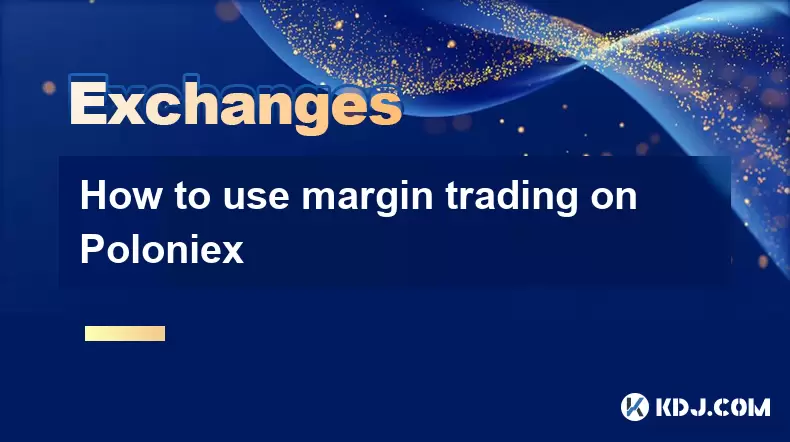
How to use margin trading on Poloniex
Aug 08,2025 at 09:50am
Understanding Margin Trading on Poloniex
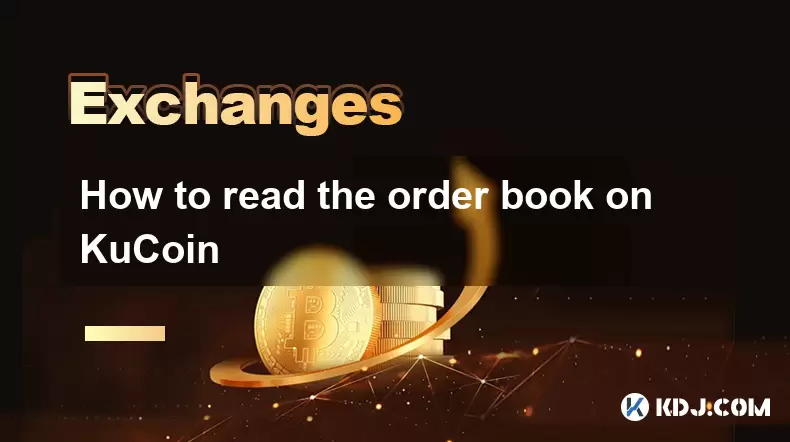
How to read the order book on KuCoin
Aug 10,2025 at 03:21pm
Understanding the Order Book Interface on KuCoinWhen accessing the order book on KuCoin, users are presented with a real-time display of buy and sell ...
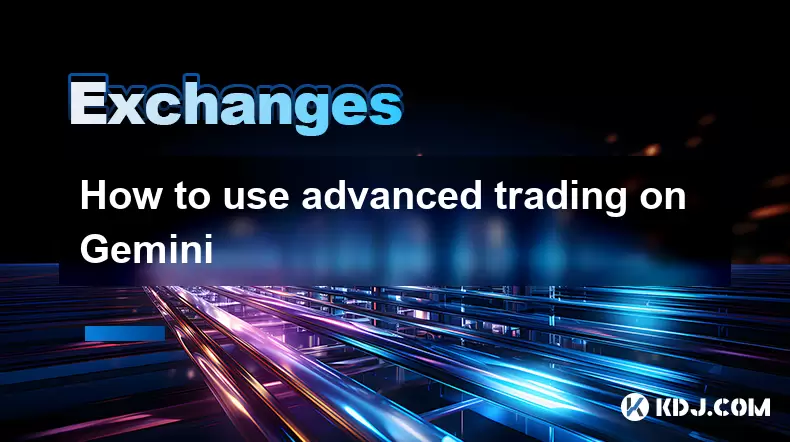
How to use advanced trading on Gemini
Aug 08,2025 at 04:07am
Understanding Advanced Trading on GeminiAdvanced trading on Gemini refers to a suite of tools and order types designed for experienced traders who wan...
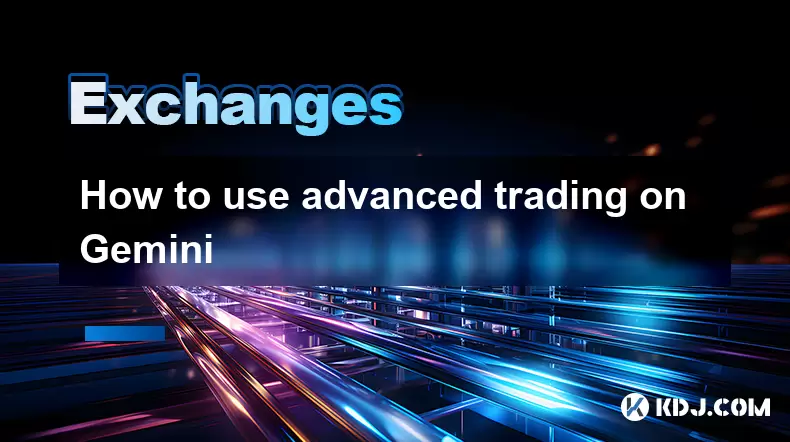
How to use advanced trading on Gemini
Aug 08,2025 at 10:56pm
Understanding Advanced Trading on GeminiAdvanced trading on Gemini refers to the suite of tools and order types available on the Gemini ActiveTrader p...
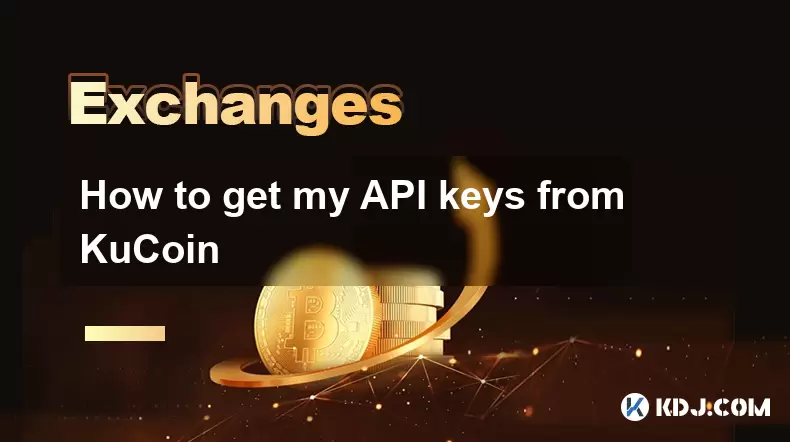
How to get my API keys from KuCoin
Aug 08,2025 at 06:50pm
Understanding API Keys on KuCoinAPI keys are essential tools for users who want to interact with KuCoin's trading platform programmatically. These key...
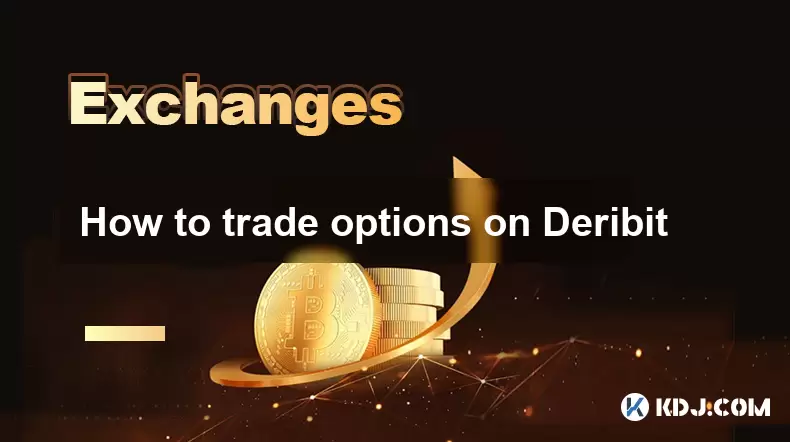
How to trade options on Deribit
Aug 09,2025 at 01:42am
Understanding Deribit and Its Options MarketDeribit is a leading cryptocurrency derivatives exchange that specializes in Bitcoin (BTC) and Ethereum (E...

How to use margin trading on Poloniex
Aug 08,2025 at 09:50am
Understanding Margin Trading on Poloniex

How to read the order book on KuCoin
Aug 10,2025 at 03:21pm
Understanding the Order Book Interface on KuCoinWhen accessing the order book on KuCoin, users are presented with a real-time display of buy and sell ...

How to use advanced trading on Gemini
Aug 08,2025 at 04:07am
Understanding Advanced Trading on GeminiAdvanced trading on Gemini refers to a suite of tools and order types designed for experienced traders who wan...

How to use advanced trading on Gemini
Aug 08,2025 at 10:56pm
Understanding Advanced Trading on GeminiAdvanced trading on Gemini refers to the suite of tools and order types available on the Gemini ActiveTrader p...

How to get my API keys from KuCoin
Aug 08,2025 at 06:50pm
Understanding API Keys on KuCoinAPI keys are essential tools for users who want to interact with KuCoin's trading platform programmatically. These key...

How to trade options on Deribit
Aug 09,2025 at 01:42am
Understanding Deribit and Its Options MarketDeribit is a leading cryptocurrency derivatives exchange that specializes in Bitcoin (BTC) and Ethereum (E...
See all articles





















